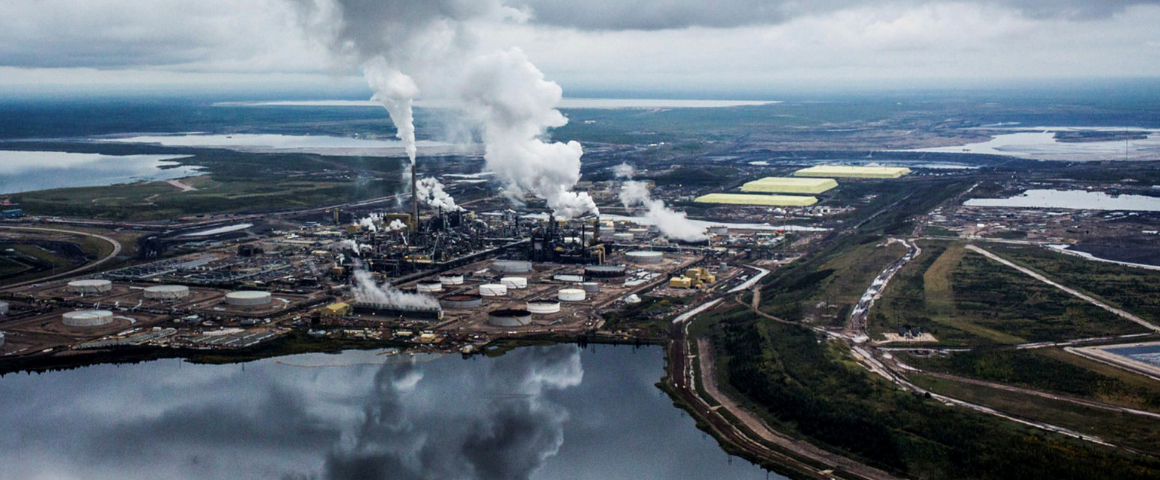The accelerating pace of climate change linked to greenhouse gas (GHG) emissions includes the alarming news that average temperatures are rising in Canada by a rate 2.5 times faster than other parts of the planet. Canada is projected to fall far short of the minimal goal of a 30 percent cut in emissions by the year 2030, and the tipping point of irreversible climate change is now expected within a decade. This global crisis calls for emergency measures by all governments. While this includes recognition of the embedded environmental costs of fossil fuel use, simply imposing carbon taxes in the form of increased fuel prices would impose enormous costs on working people rather than on the corporations which have driven GHG emissions for profits.
A much more comprehensive policy is needed to reduce Canada’s carbon footprint.
The Communist Party of Canada is campaigning on such a plan, which includes ten key elements.
1 Public ownership of energy resources
Energy resources must be placed under public ownership, with democratic control and planning, operated in a transparent manner that ensures responsible economic, social and environmental stewardship.
Only public ownership can make it possible to dramatically reduce carbon emissions and to put the interests of people and the environment ahead of private corporate profits.
2 End corporate driven energy extraction and export policies
Energy extraction and export policies must be reoriented away from corporate priorities, which aim to boost profits at the expense of Indigenous rights and the health and safety of people. Cancel all pipeline projects that enable the maintenance and expansion of tar sands extraction and halt all fracking operations. Phase out nuclear energy and the tar sands operations, and guarantee jobs at equivalent wages for energy workers in the renewable energy sector and in other sectors of the economy.
3 Replace cap-and-trade and carbon tax schemes
Instead of corporate-friendly cap-and-trade and carbon tax schemes, we need strict legal limits for pollution and hard caps emissions, especially from industrial sources, that would reduce emissions to zero by 2050. Impose strong penalties for corporations which break the law, including jail time for corporate executives.
4 Cut military spending
Canada’s military spending is bloated and rising. We need to cut the military budget by 75 percent, ending the huge carbon footprint related to deploying fighter-bomber jets, the naval fleet and other military purposes.
5 Create an overall green transition plan
The government must create and implement a comprehensive green transition plan to tackle urgent social, economic, transport and environmental priorities. Increase investment in sustainable industrial processes, and to expand renewable energy sources, especially solar, wind, hydro and geothermal power.
6 Reduce reliance on private vehicles
A key component of a green transition is to reduce reliance on private vehicles. To achieve this, we need programs to build and deliver free urban public transit in all major cities, and encourage alternatives such as cycling, walking, etc. Build affordable and rapid inter-urban rail transit for passengers. Set much higher fuel efficiency standards for vehicles built and sold in Canada; establish a publicly owned transportation industry to build affordable electric vehicles, including passenger, mass transit and light industrial vehicles.
7 Build one million units of low-cost, energy-efficient social housing
The housing crisis needs action, which can be key to climate justice. The government must commite to building one million units of low-cost, energy-efficient housing, including rent-geared-to-income (RGI) rental units, co-ops and affordable housing for sale. Upgrade and maintain existing housing units to be safe, secure, affordable, accessible and environmentally sound.
8 Transition to a zero-waste economy
Transition to a zero-waste economy; set higher standards for product design, reduced packaging, labelling and collection after use to improve waste diversion rates.
9 Protect Canada’s food sovereignty
Canada’s food sovereignty needs to be protected. This can be achieved and combined reduced energy costs by promoting sustainable domestic agriculture and farmland preservation.
10 An East-West power grid and public electrical utility systems
People need an affordable, safe and reliable power supply for industrial and residential use. The government must build an east-west power grid and rebuild publicly owned and democratically controlled provincial electrical utility systems that include production, distribution and transmission.
[Authorized by Chief Agent, Communist Party of Canada]




